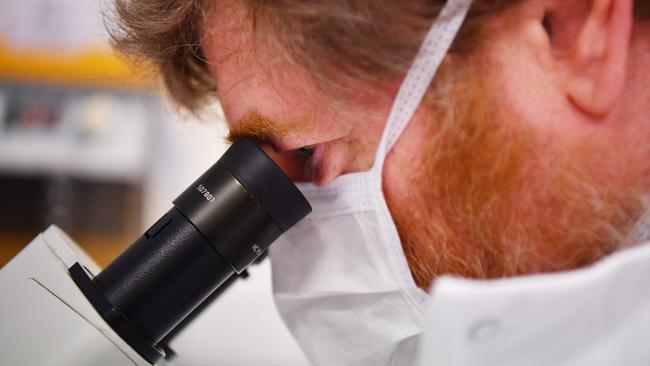Virus clue raises hopes of cure for MS
Study finds a common virus appears to be the main cause of multiple sclerosis, and it may guide scientists towards a cure.

A common virus appears to be the main cause of multiple sclerosis, according to a study that may help to guide scientists towards a cure for the condition.
The research looked at more than ten million members of the US military and found strong evidence to suggest that Epstein-Barr virus (EBV), which can cause glandular fever, is also a cause of MS.
The risk of MS was found to increase 32-fold after infection with EBV but was unchanged after infection with other viruses.
Professor Alberto Ascherio, of Harvard University, said: “The hypothesis that EBV causes MS has been investigated by our group and others for several years but this is the first study providing compelling evidence of causality.
“This is a big step because it suggests that most MS cases could be prevented by stopping EBV infection, and that targeting EBV could lead to the discovery of a cure for MS.”
MS is a disease of the central nervous system that attacks the myelin sheath that protect nerve cells in the brain and spinal cord.
It is a lifelong condition with no cure, although there are drugs that can help to place patients in remission. It is estimated to affect more than 130,000 people in the UK.
It can cause a wide range of symptoms, including loss of sight and problems with movement, sensation and balance. Some people experience severe disability, whereas for others the effects are much milder.
Dr Clare Walton, head of research at the MS Society, said that there was now substantial evidence to suggest a link between EBV and MS. “As this new study shows, evidence is also emerging to suggest the link may be causal,” she added. “However, one or more additional factors must be required to trigger MS, as despite nine in ten people worldwide being infected with EBV, most do not go on to develop MS.”
The Harvard researchers believe their findings could point the way to new treatments. “Currently there is no way to effectively prevent or treat EBV infection, but an EBV vaccine or targeting the virus with EBV-specific antiviral drugs could ultimately prevent or cure MS,” Ascherio said.
In the hunt for the causes of MS, EBV — a member of the herpes virus family that can cause infectious glandular fever or mononucleosis, also known as kissing disease — has long been considered a leading suspect.
However, establishing a causal relationship between the virus and the disease has been difficult because MS is a relatively rare disease, despite EBV being so prevalent. Also the onset of MS symptoms does not begin until about ten years after EBV infection, the latest study suggests.
After screening more than ten million members of the US military, the researchers identified 955 who had MS diagnosed during their period of service. The team also analysed serum samples taken every two years from the subjects by military doctors. This allowed them to see whether the soldiers had EBV at the time of the first sample and to explore the relationship between new EBV infections and the onset of MS in later years.
Serum levels of neurofilament light chain – a biological signal of the nerve degeneration that is typical in MS — increased only after EBV infections.
“The findings cannot be explained by any known risk factor for MS and suggest EBV as the leading cause of MS,” the researchers write in a study published in the journal Science.
The Times



To join the conversation, please log in. Don't have an account? Register
Join the conversation, you are commenting as Logout